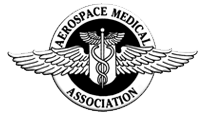FAA General Aviation Basic Medical Rule

Pilots with certain dysqualifying medical conditions are now able to fly under the new Basic Medical Rule. These are pilots who recently (anytime after July 15, 2006) had a valid medical certificate but have since contracted a condition which precludes FAA medical certification but is not listed as one of the conditions requiring FAA medical review.
The overwhelming majority of pilots who have a current FAA medical certificate, including those under Special Issuance waivers, have said that they might as well just keep getting their Class 3 FAA medical exam. Here’s why:
The Pilot’s Bill of Rights 2, (PBR2) – S.571 has been written into law and the FAA has established the procedures which took effect May 1, 2017. This is not the simple solution that active pilots were hoping for. The expectation among many pilots had been that FAA Class 3 medical certification would be abolished. That did not happen. The FAA is calling the new program “Alternative Medical Qualifications” and have also dubbed it “BasicMed”.
A pilot flying under the new “BasicMed” rule must:
- Possess a valid driver’s license;
- have held a medical certificate at any time after July 15, 2006;
- have not had the most recently held medical certificate revoked, suspended, or withdrawn;
- have not had the most recent application for airman medical certification completed and denied;
- have taken a medical education course within the past 24 calendar months;
- have completed a comprehensive medical examination with a physician within the past 48 months;
- be under the care of a physician for certain medical conditions;
have been found eligible for special issuance of a medical certificate for certain specified mental health, neurological, or cardiovascular conditions, when applicable; - consent to a National Driver Register check;
- fly only certain small aircraft, at a limited altitude and speed, and only within the United States;
- and not fly for compensation or hire.
The original bill and subsequent law were born after Senator Inhoff landed on a closed runway and was “inspired” to promote legislation to protect pilots from government harassment. Despite what many pilots believed after reading the glowing promotions by acronymic membership groups, the bill was designed to revise not eliminate third class medical certification regulations issued by the Federal Aviation Administration. This anxiously anticipated third-class FAA medical reform bill was also radically changed in the process of becoming law. As a result the “reform” will not help the many of the pilots who had great hopes of eliminating Class 3 FAA medical certification. Pilots with medical conditions that have traditionally required Special Issuance / waiver certification due to disqualifying conditions will still need to gain their initial approval from the FAA through the long established formal process. Those who have disqualifying conditions for which they have been denied in the past will still be denied by the FAA unless their condition has favorably changed.
The disqualifying conditions are as follows:
(1) Diabetes mellitus requiring hypoglycemic medication; (2) Angina pectoris; (3) Coronary heart disease that has been treated or, if untreated, that has been symptomatic or clinically significant; (4) Myocardial infarction; (5) Cardiac valve replacement; (6) Permanent cardiac pacemaker; (7) Heart replacement; (8) Psychosis; (9) Bipolar disorder; (10) Personality disorder that is severe enough to have repeatedly manifested itself by overt acts; (11) Substance dependence; (12) Substance abuse; (13) Epilepsy; (14) Disturbance of consciousness and without satisfactory explanation of cause, and (15) Transient loss of control of nervous system function(s) without satisfactory explanation of cause.
The new bill still requires at least one medical exam for new student pilots and special issuance medical holders and also for pilots who haven’t had a medical in 10 years. While the FAA may allow some pilots to avoid the conventional FAA-AME aviation medical exam, they must have their physician complete a medical checklist which essentially covers the areas reviewed by AME’s on FAA Form 8500-8.
Other problems are also beginning to emerge. Some have raised safety concerns and insurance companies for both pilots and physicians may nullify individual participation. There may also be significant legal issues. While the bill indemnifies AME’s who report medical problems, private physicians are not protected and likely to be wary of being sued since they will be more directly involved in establishing flight fitness.
What pilots need to know is that during their initial online vetting process or the mandatory examination many pilots will be told that they require Special Issuance and those pilots will have ongoing requirements. Pilots who wish to utilize BasicMed will be required to take an aeromedical factors course once every two years and also to see a physician at least every four years. Pilots with special issuance for cardiovascular, neurological, psychological or other conditions may use a private doctor to perform ongoing examinations to meet FAA requirements but this is already allowed by the FAA.
The FAA’s final rule is significantly less than pilots expected after many months of exaltation by the membership groups. So the bottom line is that while changes have been made to the GA medical certification system, anyone who thinks there will be less burdensome bureaucracy now probably hasn’t read the new law. Many pilots who have read the new lawhave said it will be easier to just keep getting their 3rd Class FAA medical certification, a process which is still very much alive.
FAA medical certification – With our service it’s easier than you think!
 FAA Advisory Circular 68-1 – Alternative Medical Qualifications
FAA Advisory Circular 68-1 – Alternative Medical Qualifications






Basic Med is not the best route for everybody. In many ways this “new rule” adds to the paperwork hassles. Seems this rule was made for old pilots who can’t get a medical but who want to fly with the rest of us. Heads Up!
Jim,
There are several good reasons to fly under Basic Medical rules and it’s not just for old pilots.
Many new pilots are finding this a good solution but you are correct that it is not without paperwork.
Another issue is that there are rumors that there is no enforcement concerning people who claim they don’t have a disqualifying conditions when in fact they have had a recent DUI or major heart issue. It is important that other pilots keep an eye out for those.
According to the FAA, the average age of Basicmed pilot is 65 years old and there are over 2300 Basicmed pilots who are 80 or older.
The oldest Basicmed pilot is 92.
That should be fine, right?